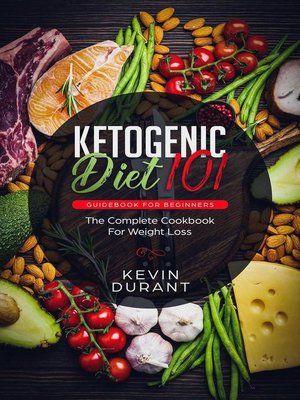
The ketogenic diet, commonly referred to as the keto diet, is a low-carb, high-fat diet that has gained immense popularity in recent years. Thousands of people have found success in achieving their weight loss goals and improving their overall health by following this dietary approach.
Understanding the Keto Diet
The Basics: The primary goal of the keto diet is to shift your body’s metabolism from using glucose as a primary source of energy to using fat. By significantly reducing your carbohydrate intake and increasing your fat consumption, you induce a metabolic state called ketosis.
Benefits of the Keto Diet
1. Weight Loss: The keto diet is highly effective for weight loss due to its ability to promote fat burning and reduce hunger cravings.
2. Increased Energy Levels: Many individuals on the keto diet report having sustained energy throughout the day, as fat is a more efficient source of fuel for the body compared to carbohydrates.
3. Mental Clarity: The switch to ketones as a primary fuel source can enhance mental focus and clarity, leading to improved cognitive function.
Important Considerations
1. Macronutrient Breakdown: To achieve ketosis, it is essential to consume a high percentage of your daily calories from fat, moderate protein, and minimal carbohydrates.
2. Potential Side Effects: Some individuals may experience initial side effects, commonly known as the “keto flu.” Symptoms can include fatigue, dizziness, and irritability. However, these usually subside within a few days as your body adapts to the diet.
What to Eat on the Keto Diet
1. Healthy Fats: Avocado, coconut oil, olive oil, butter, and nuts are excellent sources of healthy fats that can be consumed liberally on the keto diet.
2. Protein: Opt for lean protein sources such as chicken, turkey, fish, and tofu. It’s important to consume moderate amounts of protein while following the keto diet, as excessive protein intake may hinder ketosis.
3. Low-Carb Vegetables: Leafy greens, cauliflower, broccoli, zucchini, and bell peppers are low in carbohydrates and high in nutrients, making them ideal for the keto diet.
What to Avoid on the Keto Diet
1. High-Carb Foods: Foods high in carbohydrates, such as bread, pasta, rice, potatoes, and sugary snacks should be avoided on the keto diet.
2. Sugary Beverages: Soda, fruit juices, and other sugary drinks can quickly derail your ketosis efforts due to their high sugar content.
3. Processed Foods: Processed foods often contain hidden carbs and unhealthy fats, making them unsuitable for the keto diet. It’s crucial to read food labels and avoid packaged snacks and meals.
Is the Keto Diet Right for You?
Consultation with a healthcare professional is recommended before starting any new diet. While the keto diet has numerous benefits, it may not be suitable for everyone, especially individuals with certain medical conditions or those under specific medications.
It’s essential to consider your personal health goals, lifestyle, and preferences when deciding if the keto diet is right for you.
The Bottom Line
The keto diet has proven to be highly effective for weight loss and improving overall health. By understanding the underlying principles, following the recommended guidelines, and making informed food choices, you can embark on a successful keto journey. Remember to listen to your body and adjust the diet as needed to meet your individual needs.

